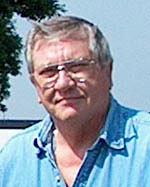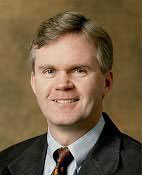By Bill Catlin
Minnesota Public Radio
September 2, 2002
It's been a little more than a year since European regulators blocked Honeywell International's proposed merger with General Electric. The buyout's blow up led to CEO Michael Bonsignore's departure, and culminated a difficult period following the company's merger with Allied Signal about three years ago. Now Honeywell officials say they've righted the ship, but the company is still shedding jobs.
| |
|
|
|
||
In 1999, Minnesota lost Honeywell's headquarters to New Jersey following the Allied Signal merger, but the Twin Cities retains the headquarters for Honeywell's Automation and Control Solutions business -- 80 percent of the old Honeywell. Kevin Gilligan, president and CEO of that business group says there's no question the months of preparing for the doomed GE merger was a challenging time.
"During the GE integration period, there was probably as much energy being spent on the questions around uncertainty as opposed to focusing on things that are going to make the business stronger," Gilligan says.
Questions persist about whether Honeywell will sell the Automation and Control business, but Gilligan dismisses them, saying new CEO David Cote wants to see the business grow. Gilligan says Automation and Control's third quarter sales should post an increase after several down quarters, and cost cutting has helped boost profits. He says the failed GE merger left the company stronger.
"We certainly learned a lot. A lot of the practices that we picked up from GE from the integration we've been able to deploy in our business and I think our employees are looking forward, rather than backward and it's behind us," Gilligan says.
Still, Honeywell as a whole has been shrinking globally, and in Minnesota. After the merger derailed and 9-11 the company announced 20,000 job cuts. In Minnesota, employment is slated to reach 5,400, a 30 percent reduction from before the Allied Signal merger.
One of the jobs being cut is Keith Schmalzbauer's. "I'm working still at Honeywell in Roseville, Minnesota, and right now we're just in the process of closing the plant down and going out of business," Schmalzbauer says. He is president of United Steelworkers of America Local 9444. At one time, the union represented 1,300 workers at Honeywell's Advanced Circuits business.
He says the operation's customers in the telecommunications industry dramatically cut back spending. But Schmalzbauer says GE probably would have shut the operation sooner.
| |
|
|
|
||
"We probably would not have survived as long as we did, if the merger would have gone through. There was a very honest attempt [by] top management, to see that this would survive," Schmalzbauer says.
But even if the failed merger arguably delayed some layoffs, securities analyst Paul Nisbet with JSA Research says it hurt the company as a whole in the short term.
"They could not do anything in the way of future planning and mergers or acquisitions were verboten during the period. They were just in Limbo. Therefore the outlook for the company after the fact was deteriorating," Nisbet says.
Nisbet agrees that practices learned from GE have helped strengthen Honeywell, but he says many of the company's markets remain weak, especially for its aerospace products.
To Jim Scheibel, the blocked GE merger changed little. Scheibel heads Project for Pride in Living, which collaborated with Honeywell to provide housing and jobs in the Phillips neighborhood, home to Honeywell's headquarters until 1999. Since the Allied Signal merger, Scheibel says Honeywell hasn't been the major presence it was, but some 3 years later community leaders don't dwell on it.
"People are very concerned about ADC [Telecommunications], what's happening with Xcel and Qwest and a lot of the other corporations as people are laid off, as their stock goes down. People are much more focused on, sort of, what’s happening today. In some ways, Honeywell is... history," says Scheibel.
It's history that the state should learn from, in the view of Minneapolis Mayor R.T. Rybak. Rybak says the loss of Honeywell shows Minnesota needs a strategy to ensure the continued growth of the state's corporate base.
"We've been coasting, I believe, for far too long on a corporate base that has changed, and Honeywell is one example of many of those that's happened. It's time for us to have a citywide and, I think, a statewide strategy on future economic development and job growth," Rybak says.
For its part, Honeywell now enjoys a generally favorable view among Wall Street analysts, despite its difficult year, and the company's share price has fallen less than the S&P 500 index since regulators blocked the merger with GE.


